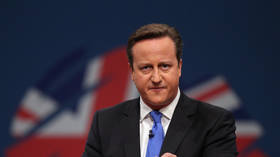OPEC+ to extend oil output cuts

The OPEC+ group of major oil-producing countries led by Russia and Saudi Arabia agreed to deepen production cuts to about 2.2 million barrels per day (bpd) at a meeting on Thursday, according to a statement from the delegates.
The group, which accounts for over 40% of global crude production, met to discuss next year’s output amid worries that the market faces a potential surplus after earlier production cuts were set to end next month.
The new plan includes an extension of the previous 1 million bpd cut by Saudi Arabia and Russia's 300,000 bpd reduction. In addition to that, Russia will reduce its exports of refined products by 200,000 bpd, while the remaining 700,000 bpd in cuts will be divided among other members. The UAE plans to cut output by 163,000 bpd, while Iraq will cut an extra 220,000 bpd.
Crude producers said they plan to gradually reduce the cuts after the first quarter of 2024 if market conditions are favorable.
OPEC+ members have taken a series of steps that started back in late 2022 to support crude prices and help stabilize the global oil market, which has had a volatile year due to sanctions against major oil producer Russia and now more recently the Israel-Hamas war.
Oil prices briefly rose on news of the OPEC+ decision, but declined later in the day and extended losses early on Friday. Global benchmark Brent crude futures for February were trading just above $80 per barrel as of 09:00 GMT, while the US benchmark WTI was around $76 per barrel.
Experts say the group’s decision fell short of market expectations, which were leaning toward a longer-lasting and official non-voluntary cut.
For more stories on economy & finance visit RT's business section












